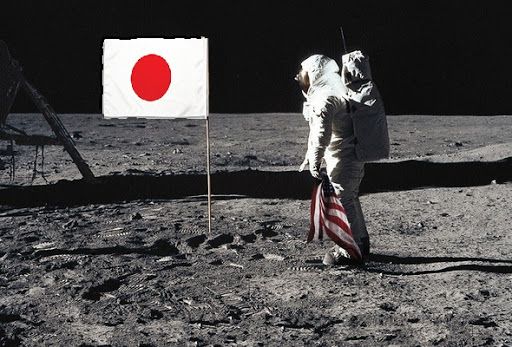
Japan Aims to Put Man on the Moon, Collaborate With US
July 2, 2020 (wionews.com)
• The Japanese government announced the country’s 10-year ‘Basic Plan on Space Policy’. Japan aims to double its space industry budget from $11 billion to $22 billion by the early 2030s, and work with the United States to track missiles and use intelligence-gathering satellites during natural disasters.
• One of the key components of the plan is to put a Japanese man on the Moon by 2024, while working with NASA. Japan plans to utilize its resources to strengthen its space policy through the ‘whole-of-government’ approach, while promoting public-private collaborations.
• Japan recently inaugurated the first ‘Space Operations Squadron’ at Fuchu Air Base in Tokyo as an “Air Self-Defense Force”, which will become fully operational by 2023. The squadron will work with the US Space Command to protect the country’s satellites from damage, including armed attacks according to the ‘Basic Space Law’.
• Japan already operates the ‘Quasi-Zenith Satellite System’ to enhance the US’s Global Positioning System in the Asia-Oceania regions. Japan plans to launch a new GPS navigation system of its own in 2023 with 7 satellites. It is concerned over China’s capability to jam or attack satellites with other neighboring countries North Korea and Russia capable of upsetting the regional balance in arms technology.
• In January 2019, China became the first nation to land a rover on the dark side of the lunar surface. This month, China plans to launch a mission to remote-controlled robot on the surface of Mars. The US has already sent four exploratory vehicles to Mars, and intends to launch a fifth this summer which should arrive around February 2021.
• China recently completed its own GPS-type geolocation system which it began in the early 1990s. 120 countries including Pakistan and Thailand are using the Chinese GPS system for port traffic monitoring, to guide rescue operations during disasters and other services, according to Chinese state media.
• When Donald Trump announced the creation of the new Space Force in December, Russia accused the US of seeing space as a place to wage war. In return, the US accused China and Russia of developing tools for jamming and cyberattacks that directly threaten US satellites.
• The Pentagon has stressed that it intends to maintain superiority in space to protect its GPS satellites. In the midst of an escalating space war, the US and Japan have strengthened their “space relations” to build their joint space network and strengthen their satellite force over the next 10 years.
Amid the coronavirus pandemic, the Japanese government for the first time in five years updated its Basic Plan on Space Policy while outlining the country’s 10-year basic space policy. It will work with the United States to not only track missiles but use intelligence-gathering satellites during natural disasters.

Japan aims to double its space industry by the early 2030s, which currently stands at $11 billion.
One of the key components of the plan is to put a Japanese man on the Moon by 2024 while working with NASA scientists.
Experts say Japan’s space policy is being led as a reaction to China’s 2013 Jade Rabbit lunar rover mission.
Public-private collaboration
“The Government of Japan, recognizing such huge potential of outer space and the severe situation that it is facing, hereby decides a basic plan on space policy for coming ten years with the view of the next two decades, and will secure sufficient budgetary allotments and other necessary resources, and effectively and efficiently utilize these resources to strengthen its space policy through the whole-of-government- approach, while promoting public-private collaborations,” the Japanse government said in a statement.
Air Self-Defense Force
Japan recently inaugurated the first Space Operations Squadron in Tokyo at Fuchu Air Base as an “Air Self-Defense Force” which will become fully operational by 2023.
It is meant to protect the country’s satellite from damage, including armed attacks while working with the US Space Command.
FAIR USE NOTICE: This page contains copyrighted material the use of which has not been specifically authorized by the copyright owner. ExoNews.org distributes this material for the purpose of news reporting, educational research, comment and criticism, constituting Fair Use under 17 U.S.C § 107. Please contact the Editor at ExoNews with any copyright issue.
Air Self-Defense Force, Basic Space Law, China, Fuchu Air Base, Japan, North Korea, public-private collaborations, Quasi-Zenith Satellite System, Russia, space force, Space Operations Squadron, The Moon, US Space Command